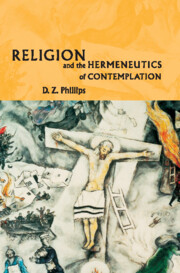Book contents
- Frontmatter
- Contents
- Preface and acknowledgements
- 1 Hermeneutics and the philosophical future of religious studies
- 2 Bernard Williams on the gods and us
- 3 Hume's legacy
- 4 Feuerbach: religion's secret?
- 5 Marx and Engels: religion, alienation and compensation
- 6 Tylor and Frazer: are religious beliefs mistaken hypotheses?
- 7 Marett: primitive reactions
- 8 Freud: the battle for ‘earliest’ things
- 9 Durkheim: religion as a social construct
- 10 Lévy-Bruhl: primitive logic
- 11 Berger: the avoidance of discourse
- 12 Winch: trying to understand
- 13 Understanding: a philosophical vocation
- Index of names
- Index of subjects
1 - Hermeneutics and the philosophical future of religious studies
Published online by Cambridge University Press: 03 December 2009
- Frontmatter
- Contents
- Preface and acknowledgements
- 1 Hermeneutics and the philosophical future of religious studies
- 2 Bernard Williams on the gods and us
- 3 Hume's legacy
- 4 Feuerbach: religion's secret?
- 5 Marx and Engels: religion, alienation and compensation
- 6 Tylor and Frazer: are religious beliefs mistaken hypotheses?
- 7 Marett: primitive reactions
- 8 Freud: the battle for ‘earliest’ things
- 9 Durkheim: religion as a social construct
- 10 Lévy-Bruhl: primitive logic
- 11 Berger: the avoidance of discourse
- 12 Winch: trying to understand
- 13 Understanding: a philosophical vocation
- Index of names
- Index of subjects
Summary
THE PRESENT CONTENDERS: THE HERMENEUTICS OF RECOLLECTION AND THE HERMENEUTICS OF SUSPICION
Since Paul Ricoeur's book, Freud and Philosophy: An Essay on Interpretation, it has been commonly understood that if we want to understand religious concepts we have to choose between two distinct modes of interpreting religion in religious studies: the hermeneutics of recollection or the hermeneutics of suspicion. The hermeneutics of recollection is sympathetic to religion, since it assumes that believers are in touch with something real. Its task is to recollect, in the sense of retrieve, this ‘something’ for our age, convinced that there is a message here which we need to heed. The new faith which emerges from this dialectical exercise will be one which has been purged by the fires of criticism. By contrast, the hermeneutics of suspicion denies that there is a divine reality in religion. The very conception of it is said to be the product of illusion. The imperative of the intellect is an imperative to be radically suspicious in this context. Since there is nothing real to recollect, or to retrieve, enlightenment consists in rescuing us from religious mystification.
Ricoeur believes that most phenomenologists of religion need to practise the hermeneutics of recollection. The faith which finally emerges will be a second naiveté, but one which can only be achieved when one has worked one's way through to it via the various criticisms of religion in our culture which cannot be ignored.
For many others, such as J. Samuel Preus, the hermeneutics of suspicion is the very hallmark of modern religious studies.
- Type
- Chapter
- Information
- Religion and the Hermeneutics of Contemplation , pp. 1 - 30Publisher: Cambridge University PressPrint publication year: 2001



